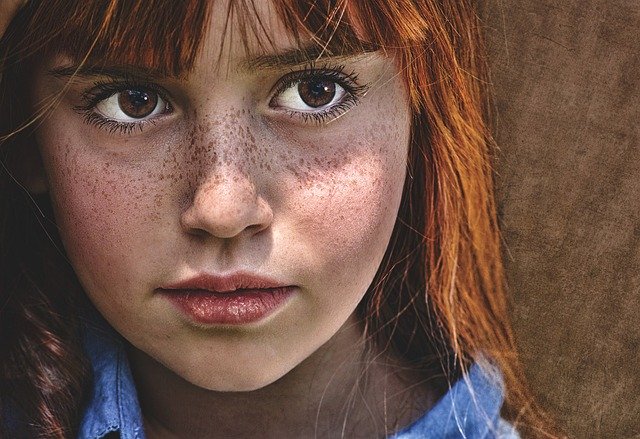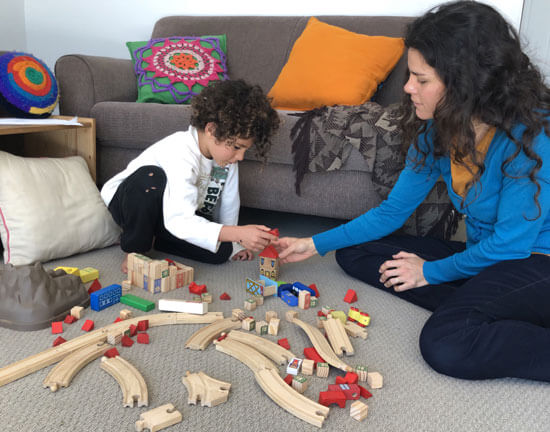Ask what is the definition of anxiety and you’ll get many answers
Anxiety, fear, depression, bullying, low self-esteem, difficult social interactions, and learning difficulties can all be interconnected and all fit the definition of anxiety. They are a big part of the life of many adults and children.
Exposure to different types of stresses during childhood development may be associated with hyperactivity and possible depression, anxiety disorders, sleep disturbance, and/or aggression at a later stage of life.
Today’s life is quite challenging for our entire being (physical, emotional, psychological, spiritual). Some people say they are always playing catch up because of the enormous demand of needing to be productive, multitask, and so on. We start to become stressed, anxious and depressed.
Surrounded by so many distractions and impositions, we are taken away from our connection to our inner self. We have been trained to desensitise from ourselves. We have been bombarded with rules, ways of being, behaving, dressing, thinking, and even feeling. We have learned to hide our true emotions, feelings and thoughts, and become what society wants us to be. We have disconnected from our body and our senses – we no longer know ourselves. And we have started to become emotionally and physically sick.
Emotions affect our physical body. When we carry uneasiness for long periods of time in our life and are unable to solve an emotional issue, or change our mindset, emotions will get stuck in the body in the form of disease and/or pain. And then we cannot deny the body’s condition. Therefore, to heal, we need to give attention to the emotional issue.
1. Anxiety
We face situations in life that bring us some level of anxiety. However, it is not a natural state of being. We have become (unconsciously) attached to anxiety as we have separated from our own self. A small child does not have anxiety because they live in the now and they are an organism in perfect unity. They have not yet experienced separation.
In the first 6 – 7 years, children are like a sponge, they absorb and learn every single thing they experience. They are quite sensitive and feel their parent’s energy. If parents are experiencing a stressful situation, the child can become quite demanding, irritable, and emotional. Children often respond to their parent’s feelings.
Children also become very anxious due to the expectations that parents, school, and society places on them. As parents, we can expect children to achieve high levels too often. Consequently, children live in distress because they need to act in a certain way to be accepted. Thus, they learn to hide true emotions, feelings, and thoughts to meet society’s expectations. When they are not allowed to feel, they start to shut down.
An emphasis on just academic success can stress a child. Children have been educated to acquire information; to be imitators, and to be like others, which leads to competition, enmity, and a lack in their social interactions.
They start to become controlling, perfectionists, get stressed easily. They want to reach for the outcome straight away. They don’t want to go through the learning process and get frustrated easily. They have difficulty letting go, expressing themselves verbally, become self-judgmental, and at the same time fear the judgement of others. The feeling of guilt for not performing well is also experienced. This inhibits initiative and self-expression, and prevents assertiveness and autonomy.
Adults place huge expectations on children, and this affects their natural expression. If we want to help them to be creative, free to be themselves, and develop the natural wisdom that they already have, we need to work on our emotions to help our children with theirs.
Parents can play an essential role in teaching their children how to manage and balance their emotions, and how to manage life in a healthy way. Otherwise, children may express impulsive and reactive behaviours, without self-regulation of their emotions.
When we respect our children and others, there is a sense of equality; not a demonstration of power over them. They feel more understood, confident, calm and safe. When we allow room for inner peace and nourishment of the soul, we create a space for the healing process.
Overcoming anxiety is easier if the environment feels safe to the child, the child can embrace and explore the physical and social world through creative play.
2. Fear
Fear is a natural part of the child’s development process. It is an instinctive reaction to keep us safe from risky situations. Children often fear darkness, monsters, animals, etc., and it will eventually fade away.
Fear can be psychologically harmful, when it is experienced for a prolonged period of time and/or, at the same time, it stops the child from performing their daily activities, and it may turn into a trauma. In this case, the emotions triggered by a certain situation need to be addressed.
Children are often surrounded by the fears and anxiety of adults. We transfer these emotions to our children, unconsciously. They sense their parent’s fear and may reproduce it in their lives. These fears interfere with children’s healthy development. It causes defensive behaviour in the child and may compromise their connections with people, leading to antisocial behaviour.
Fear also results in physical and chemical responses. Children who live in a tense and anxious environment do not feel safe and it may lead to a hardening of the child’s physical body. Fearful situations lead to fight-or-flight reactions. In fear, we contract ourselves.
Alterations, such as stress, fear, and sleep-wake cycle disturbance, affect the healthy functioning of the organism. It affects the heartbeat, blood circulation, and other visceral organs. If it is constant, they can lead to serious health problems.
Children may feel immensely overwhelmed by the world. Large amounts of stimuli impact negatively on childhood sensory development. What is the opposite of this? What do we have that will affect us positively? We can feed ourselves, visually, aurally, foods we eat and sensations in general.
It is certainly important to recognise what we bring into our reality, physical body, emotional, psychological, and spiritual realms, and how we want to create and develop ourselves.
We, as parents, need to be aware of what our children are exposed to. For example, social media can create a reality of fear and panic around people; people believe in it and reproduce this reality, unconsciously.
Another situation that social media evokes in people is the comparisons between one another. Comparison can bring disgrace to one’s heart, and it is very likely that we feel smaller, unworthy, and unhappy. On top of that, implicit messages and symbols in the media can be detrimental to our children’s mental, social, and psychological development.
We parents are responsible for providing the optimum conditions for our children’s brain development and for preventing future socio-psychological problems.
3. Depression
We live in a dysfunctional system where society wants to adjust everyone accordingly to what they judge is ‘normal’. But what is ‘normal’? There is no such thing as normal; there is no one like you, like me. Everyone is unique.
People judge, criticise and label others. Children start to feel weird, as if they don’t belong and are trapped. Children that feel uncomfortable in their skin, usually has difficulties in socialising. And those who have completely encapsulated themselves may experience depression.
4. Bullying 5. Low self-esteem 6. Social issues
Bullying during a child’s development evokes uncomfortable feelings and the child starts to become inhibited, insecure, withdrawn, shy, develop low self-esteem, difficulties in expressing themselves, difficulties relating to others, and trust issues. Bullying may lead to later mental health problems, such as low self-esteem, depression, and antisocial behaviour.

Adults that did not learn how to balance emotions during their childhood continue to enter a reactive mode of behaviour based on old habits, transmitted over generations.
Social and emotional abilities are a learning process, and children model their parent’s way of feeling and being in their interactions. If parents have respectful socio-interactions, children will probably do likewise.
Therefore, it’s important that parents try to:
- create a warm bond and provide adequate emotional care for their children
- become aware of their children’s feelings
- teach them how to regulate their feelings
- teach them how to manage and balance their emotions
- model methods of how to resolve conflicts
These children are more likely to develop resilience, assertiveness, and confidence which becomes their tool kit for healthy relationships.
7. Learning difficulties
Children diagnosed with ADHD, ADD, dyslexia, dyspraxia, poor concentration, and fidgetiness usually present a certain level of learning difficulties. Why?
Possibly, because there are some aspects in their development process that were not met, the physical body was not able to perform in a natural harmonious manner. This is helped by balanced nutrition, balanced sleep-wake cycle, and rhythm, as well as balanced neurotransmitters’ production (the body’s chemical messengers), involved in the functions of the nervous system and in controlling bodily functions.
Children’s health affects their learning
Nutrition builds up the body and plays a significant role in the child’s metabolism and vitality. Children who frequently have a poor diet will get tired very easily and have a compromised digestive system somehow, which will also affect the learning process. On the other hand, if children have good nutrition, it will help to build up enough energy to perform daily activities, and it also will help in the balanced production of neurotransmitters.
Lack of sleep may be also one of the reasons why the child is not functioning well. For instance, children who have enlarged adenoids present with sleep problems. In this case, homeopathy is of immeasurable help. Sleep deprivation compromises learning, health and happiness. Children can become aggressive, withdrawn, and sad. We just need to think of ourselves; when we are tired, we have no energy, no patience, we do not process information properly and we lack memory.
Children need rhythm in their life. The emphasis on just the academic can stress the child and they do not learn completely and freely. Children also need time to have free play, to be creative, to socialise with peers, to be in nature and explore the surroundings. A good balance between indoor and outdoor activities helps the child to self-regulate their emotions and their energy, and will support them in their learning process.
Psychological and emotional issues also contribute to lower performance in the classroom. Children feel overwhelmed by the world by various stressful situations and emotions experienced in life. For instance, by exposing our children to electronic devices we have no idea how harmful it is to their processes of listening, processing information, creativity, and spontaneity. This habit disturbs their brain function and the healthy development of their senses, which helps them to connect with their inner self and understand their feelings.
There is often a lack of awareness about the early roots of social, emotional, and psychological problems. Children need structure, guidance, and security, as well as parental affection and emotional support. If parents are more present, conscious of what are the real needs of their child, they will provide the greatest conditions for their children’s entire healthy development.
And what are the signs these emotions show us?
What are the signs that the children show us?
What are they asking for?
We are all searching for meaning in our lives, for true and real relationships. We all want to express ourselves freely in the world and feel safe at the same time. We want to develop self-perception, resilience, autonomy, assertiveness, and the capacity to be in relationships in a conscious and harmonious way.
Children’s natural state is being present, in the now, free to explore their surroundings, to play organically, and in nature. Such things support the development of the children’s senses and their inner abilities to evolve emotionally and physically healthy.
And these abilities can be nurtured by creating a space of understanding and love, where children feel safe, where they can experience the environment and explore their senses, emotions, thoughts, and behaviour without being judged. This reflects a genuine human interaction, which is the most valuable thing for a child.
About me
My name is Ana Carolina and when I was younger, I often asked myself: Who am I?
I found myself identifying with Carl Rogers’ thoughts. He was a humanistic psychologist, who believed everybody has the ability to achieve their goals, wishes, and desires in life. Since then, I have been developing the way of being congruent and assertive. Becoming the person I want to be and helping others to discover their true self.
I live and work in Sydney, Australia. Since 2004, I have worked as a Clinical Psychologist qualifying originally in Brazil. I specialise in Client-centered Psychotherapy and Child Centred Playtherapy. My counselling sessions are based on mindfulness and holistic awareness to help my clients create a nourishing and meaningful life.
I have experience working with children, adolescents, and adults from all age groups. My current main area of study is working with children with a variety of difficulties, such as ADHD, ADD, anxiety, among others, where I focus on developmental movement therapy to help them to develop their personal and learning abilities. In addition, I count on multidisciplinary therapies, such as homeopathy, osteopathy, chiropractic, and speech therapy, to assist the client’s whole being.

Other areas of interest lie in assisting the person with emotional issues, anxiety, loss and grieving, relationship issues, interpersonal difficulties, personal growth and development, and parenting counselling.
The benefits of therapeutic process in my sessions include:
- Improving children’s health development
- Providing a space for movement
- Increasing physical and sensory integration
- Developing more self-awareness (parents and the child)
- Offering parenting support
- Assisting parents to help their children to self-regulate emotions and behaviours
- Supporting emotional, mental, socio-psychological development
- Supporting adults and children with anxiety, ADHD, ADD and learning difficulties
- Developing resilience, assertiveness, confidence, and autonomy
- Providing a space for the healing process
Learn more about the author of this blog, Ana Carolina Ladeia




Leave a Reply